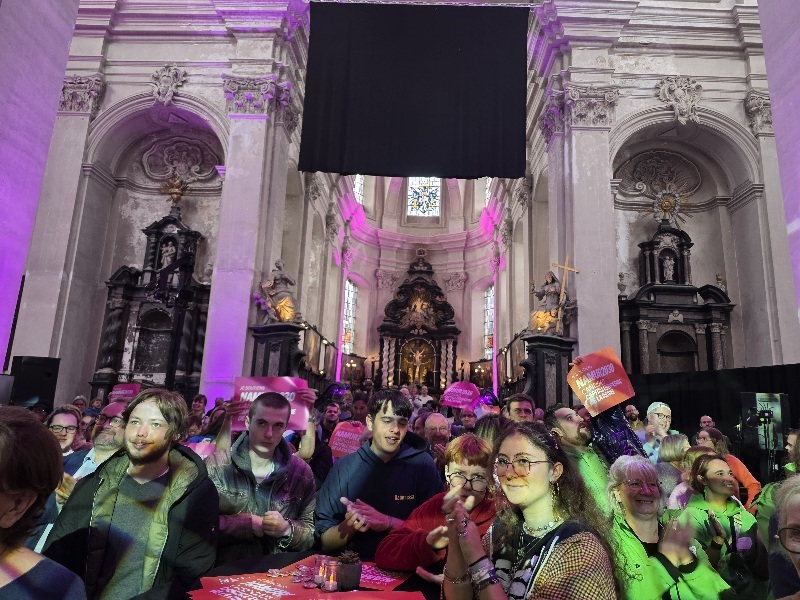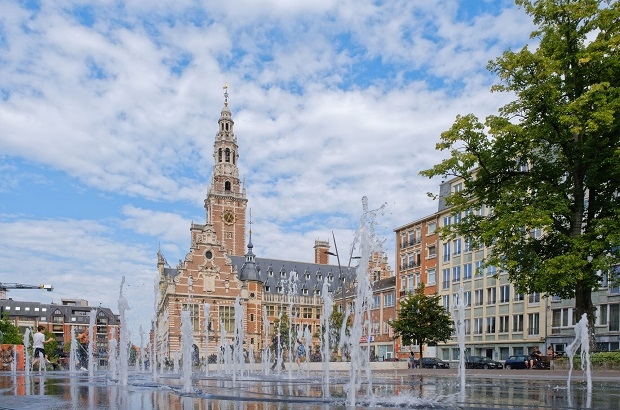- Daily & Weekly newsletters
- Buy & download The Bulletin
- Comment on our articles
Leuven crowned Belgium’s European capital of culture in 2030
The city of Leuven has been named European Capital of Culture title in 2030, beating off rival candidates Molenbeek and Namur for the prestigious title.
Renowned for its historic university, the Flemish city impressed the international jury with a project combining cultural innovation, European openness and the promotion of its heritage.
Sharing its joy at the decision on social media, the city said: “The jury chose Leuven & Beyond as the European Cultural Capital 2030! We are - with LOV 2030 - incredibly proud of the entire region, all the residents, associations and partners. Let's go to an unforgettable 2030!”
Acknowledging the rival bids, Leuven added: “Congratulations to Namen and Molenbeek with their beautiful projects.”

For losing candidate Molenbeek (pictured above), which was supported by the city of Brussels, there was a defiant message to continue rewriting the narrative around the maligned municipality.
Praising the communities that came together for the bid, it said: “The energy and connections sparked by MB2030 do not end today. The projects that began through this process (bringing nature back into our city, opening public spaces for creativity, empowering young people, and making art part of everyday life) will keep growing.”

A similar sentiment was expressed by the city of Namur (pictured above). “While the jury's decision was disappointing, it in no way diminishes the tremendous work and boundless enthusiasm demonstrated by the citizens, artists, associations, political authorities and business community of Namur in developing this ambitious project since March 2024.”
The title of European Capital of Culture was created in 1985 by Melina Mercouri, then Greek minister of culture. Since then, the European Commission has awarded each year the coveted title of European Capital of Culture to two or three European cities.
Belgium was selected in honour of the country’s bicentenary in 2030, joining a Cypriot city as one of the laureates. It has previously held the title four times: Antwerp (1993), Brussels (2000), Bruges (2002) and Mons (2015).
Leuven, Molenbeek and Namur were selected as finalists for Belgium’s bid from a total of six candidates, including Bruges, Ghent and Kortrijk. Over the past year, each finalist made a further presentation of their respective projects and hosted a delegation by the international jury.
It now falls on the winning city of Leuven to prepare to showcase its heritage and cultural vibrancy through a multitude of events and activities. These initiatives need to leave a legacy that extends beyond the year of celebration in order to boost the tourist, economic and social appeal of the region.

LOV2030 aims to make culture a driving force for social and economic transformation throughout Flemish Brabant. Adopting the theme "A City of Many Horizons", it highlights youth, sustainability, intercultural dialogue and a new urban way of life.
Leuven also highlights its rich and diverse cultural scene, which includes numerous museums, libraries, festivals and artistic venues. It promises a cultural capital open to Europe and the world, combining tradition and modernity, scientific innovation and contemporary artistic creations, supported by strong public-private partnerships and the collective engagement of local stakeholders.
Photos: (Leuven celebrates ©Stad Leuven; Molenbeek 2030; Namur awaits announcement; KUL Library ©Filip Van Loock



















